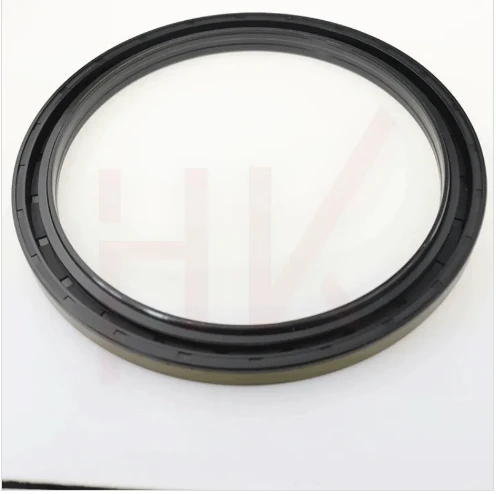dec. . 31, 2024 10:00 Back to list
Understanding the Importance of Rotary Shaft Oil Seals in Mechanical Performance
An Overview of Rotary Shaft Oil Seals
Rotary shaft oil seals are crucial components in a variety of mechanical systems, particularly those involving rotating shafts. They play an essential role in maintaining the integrity of a system by preventing lubricant leakage and keeping contaminants out. This article delves into the design, functionality, and applications of rotary shaft oil seals, highlighting their significance in machinery and equipment.
Understanding Rotary Shaft Oil Seals
Rotary shaft oil seals, also known simply as oil seals, are designed to seal the space between a rotating shaft and the stationary component of a machine. They typically consist of a rubber or elastomeric lip that makes contact with the shaft, secured by a metal or plastic casing. The primary function of these seals is to retain lubricants where needed, ensuring smooth operation of the rotating parts while simultaneously preventing dirt, dust, and other external contaminants from entering the system.
Design and Materials
The design of rotary shaft oil seals can vary significantly based on their intended application, the type of equipment, and the operating conditions they will face. Common materials used in the manufacturing of oil seals include nitrile rubber (Buna-N), fluorocarbon rubber (Viton), and silicone. Each material possesses unique properties that make it suitable for different environments. For instance, Viton is often chosen for high-temperature applications due to its excellent heat resistance, while nitrile is favored for its good oil resistance and general versatility.
Furthermore, the design also incorporates different lip styles and configurations to enhance sealing performance. These variations can improve the oil seal's ability to withstand pressures and temperature fluctuations, which are common in many mechanical systems.
Functionality
rotary shaft oil seals

The functionality of a rotary shaft oil seal is critical for the operational efficiency of machinery. When properly installed, an oil seal creates a barrier that allows lubricants to remain within the machinery while preventing external contaminants from entering. This dual action helps to minimize friction between moving parts, leading to increased efficiency, reduced wear and tear, and extended equipment lifespan.
Moreover, maintaining the right amount of lubricant is vital for heat dissipation and smooth operation of rotating components. Without effective sealing, oil can leak out of the bearings or gears, leading to dry operation, overheating, and potential equipment failure.
Applications
Rotary shaft oil seals find applications in various industries, including automotive, aerospace, manufacturing, and hydraulics. In the automotive sector, they are commonly used in engines, transmissions, and axles to prevent fluid leaks and ensure proper lubrication. In industrial machinery, they are instrumental in maintaining the efficiency of motors, pumps, and gearboxes.
Hydraulic systems also rely heavily on rotary shaft oil seals to maintain pressure and prevent fluid loss. In aerospace applications, the integrity of seals becomes even more critical, as any leakage can lead to catastrophic failures. Thus, high-quality oil seals are engineered to withstand extreme conditions, including high pressures and temperatures encountered in flight.
Conclusion
As versatile and essential components of modern machinery, rotary shaft oil seals play a significant role in the performance and longevity of various systems. Their ability to prevent lubricant loss while blocking contaminants makes them invaluable across multiple industries. Understanding the importance of these seals, their design, materials, and applications can aid in making informed decisions regarding maintenance and replacement, ensuring optimal operation and reliability of mechanical systems. Regular inspection and timely replacement of worn seals can save significant costs associated with equipment failure, enhancing overall productivity and efficiency.
-
The Trans-formative Journey of Wheel Hub Oil Seals
NewsJun.06,2025
-
Graphene-Enhanced Oil Seals: Revolutionizing High-Pressure Oil Sealing
NewsJun.06,2025
-
Future of Hydraulic Sealing: Advanced Intelligent TCN Oil Seals
NewsJun.06,2025
-
Don’t Let a Broken TCV Oil Seal Ruin Your Day
NewsJun.06,2025
-
Bio-Inspired Dust Seals for Better Sealing Performance
NewsJun.06,2025
-
Biodegradable and Sustainable Hydraulic Seal Materials
NewsJun.06,2025
-
Top Oil Seal Solutions for Your Industrial Needs
NewsMay.22,2025
Products categories
















